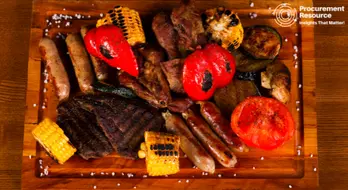Cargill, the Foremost Global Provider to Pledge that Its Complete Edible Oil Range to be Based on WHO’s Industrially Produced Trans-Fatty Acids Best Practices

Cargill has committed to removing industrially produced trans-fatty acids (iTFAs) from its complete global edible oil collection as food manufacturers seek ways to improve consumer diets. Cargill and its customers will be able to meet the World Health Organization's (WHO) recommended limit of two grammes of industrially produced iTFA per one hundred grammes fats/oils by the end of 2023.
The WHO's REPLACE initiative guides governments and industry in implementing best practises on iTFA in the global food supply chain to address related health concerns. Cargill is the first edible oil supplier to commit to the WHO goal, joining the world's largest food companies and members of the International Food and Beverage Alliance (IFBA).
Cargill is pleased to determine its commitment to scale back iTFAs all of their oils, which supports the globe Health Organisation's goal of eliminating iTFAs from the food supply, said René Lammers, PepsiCo's Executive Vice president and Chief Science Officer.
This decision is in line with PepsiCo's efforts to scale back iTFAs in our foods and represents a vital step in our pep+ (PepsiCo Positive) journey to evolve our food and beverage portfolio to be better for the world and other people. He further added that Cargill is a particularly important part of their supply chain, and that they expect to collaborate with them to accelerate progress toward our iTFA goals.
Cargill has removed approximately one billion pounds (nearly 500,000 metric tonnes) of iTFAs from the global food supply over the last 25 years, resulting in approximately 89 percent of its global edible oils portfolio already meeting the WHO's iTFA best practise.
With this commitment, the company will now achieve 100 percent compliance, even in countries where no legislative mandate exists. To achieve this final 11 percent, the company is investing heavily in upgrades at several facilities to reduce the amount of iTFAs produced during the oil manufacturing process, as well as leveraging decades of innovation expertise to provide food customers with alternative formulations that will assist them in meeting WHO best practise.
David Webster, chief risk officer and leader of Cargill's food ingredients and bioindustrial enterprise stated that even as the world battles the COVID-19 pandemic, they know that improving nutrition is a top priority at the global level.
This commitment is consistent with the company’s mission to nourish the world in a safe, responsible, and sustainable manner, and it provides them with the opportunity to eliminate iTFAs from the global food supply regardless of where food is manufactured or consumed. He added that they understand that this effort will take time, and are excited to collaborate with customers as they take this key step.
Cargill's commitment builds on decades of innovation in addressing iTFAs, which are primarily formed during the partial hydrogenation of vegetable oils but can also be caused by high thermal treatment during the refining process.
While iTFA regulations are in place in approximately forty countries, either through PHO bans or limits on maximum iTFA levels in food, they continue to be a health concern in many areas. Cargill's innovation centres have made considerable progress toward reformulating alternatives to iTFA-containing products, providing viable and safer solutions to more than three hundred global customers to date.
These innovations show that not only is it possible to meet WHO best practises on iTFAs, but it is also possible to do so without significantly altering the taste or texture of consumers' favourite foods. Cargill will support the WHO's efforts by engaging with targeted regional and national stakeholders, such as governments and oil industry federations, to support industry-wide reformulations, particularly in countries where legislation is not yet in place.


